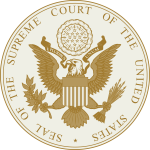Can an advisor be held liable for the false statements in a prospectus made by another?
For all you accountants, investment advisors, and even attorneys who provide advice and guidance to companies or other entities raising money or other property for investment purposes, it might be a good idea to pay particular attention to the
United States Supreme Court opinion, when issued, in the case of Janus Capital Group, Inc. v. First Derivative Traders, No. 09-525 (S. Ct.). This case was argued before the Court on December 7, 2010. The Court’s opinion should be issued sometime during the first half of 2011.
Janus Capital Group, Inc. is somewhat factually and legally complex. However, in very simplified terms, First Derivative Traders is attempting to assert primary Securities Exchange Act Section 10(b) fraud liability against an entity,
Janus Capital Management LLC, that “helped” and “participat[ed] in” preparing a prospectus. The prospectus was actually that of, and was issued by, Janus Funds, a separate entity. Janus Funds had its own lawyers review the prospectus. Further, the Funds’ Board of Trustees, which was primarily responsible for it, reviewed it, as did the outside Trustees of Janus Funds, who also had their own counsel review it.
The United States (i.e., the Securities and Exchange Commission) filed an amicus brief in this case advocating such indirect liability in private actions, never mind the right of private action was judicially, not statutorily, created.

United States Supreme Court
The questions in Janus, as presented in the petition granted certiorari, are:
“There is no aiding-and-abetting liability in private actions brought under Section 10(b) of the Securities Exchange Act of 1934. Central Bank of Denver, N.A. v. First Interstate Bank of Denver, N.A., 511 U.S. 164 (1994). Thus, a service provider who provides assistance to a company that makes a public misstatement cannot be held liable in a private securities-fraud action. Stoneridge Inv. Partners, LLC v. Scientific-Atlanta, Inc., 128 S. Ct. 761 (2008).”
“In the decision below, however, the Fourth Circuit held that an investment adviser who allegedly “helped draft the misleading prospectuses” of a different company, ”by participating in the writing and dissemination of [those] prospectuses,” can be held liable in a private action “even if the statement on its face is not directly attributed to the [adviser].” App., infra, 17a-18a, 24a (emphases added).”
1. Whether the Fourth Circuit erred in concluding-in direct conflict with decisions of the Fifth, Sixth, and Eighth Circuits-that a service provider can be held primarily liable in a private securities fraud action for “help[ing]” or “participating in” another company’s misstatements.
2. Whether the Fourth Circuit erred in concluding-in direct conflict with decisions of the Second, Tenth, and Eleventh Circuits-that a service provider can be held primarily liable in a private securities-fraud action for statements that were not directly and contemporaneously attributed to the service provider.”
Or, as Justice Scalia put it at oral argument on December 7th:
“JUSTICE SCALIA: I thought that the question on which we granted cert was very clear: whether the Fourth Circuit erred in concluding that a service provider can be held primarily liable in a private securities fraud action for, quote, “helping,” close quote, or, quote, “participating in,” close quote, another company’s misstatements. Now, is — is that an accurate description of the Court’s holding? It was not objected to by the Respondent here.
MR. PERRY: Absolutely, Justice Scalia. . . .”
The Congress considered such liability issues when it debated the Sarbanes Oxley amendments to the federal securities acts, deciding against statutorily mandating such liability. A good guess is that the Fourth Circuit Court of Appeals will be overturned and no primary liability will be found (5-4, Chief Justice Roberts and Justices Kennedy, Scalia, Thomas, and Alito voting to overturn the Fourth Circuit; Justices Breyer, Ginsberg, Sotomayor, and Kagan, dissenting).
HOWEVER, for anyone assisting a person or entity in raising money or obtaining other property for investment purposes from third parties, this case bears watching.
Tarley Robinson, PLC, Attorneys and Counsellors at Law
Williamsburg, Virginia


